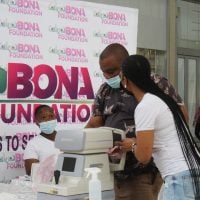Deadline: 7-Jul-25
The Morgan Stanley is accepting applications for Children’s mental health Innovation Awards which aims to help fill the funding gap in the under-resourced children’s mental health sector and provide runway for game-changing ideas.
Their goal is to connect nonprofits with funders, in order to match much-needed capital with innovative projects in the field of mental healthcare for children and youth. They also offer leadership learning opportunities to build capacity for nonprofits.
Benefits
- Winners will receive grants to scale their innovative work. In addition, they will receive leadership training from industry experts, build powerful connections and raise their profile. Next Gen Innovation Award winners will also have mentorship opportunities.
Funding Information
- Grants of $100,000 will be awarded to each Innovation Award winner and grants of $25,000 – $50,000 will be awarded to each Next Gen Innovation Award winner.
Eligible Projects
- They are looking for new or piloted projects from direct-service organizations that will help address the far-reaching challenge of stress, anxiety, depression or other mental health issues in children and young adults in the U.S. Projects must tackle specific issues and address unmet needs, with a goal of educating the public, reducing stigma, increasing access to care, improving equity in mental health, enabling early identification/prevention, enhancing intervention or fostering peer support, especially among disadvantaged and vulnerable populations.
Eligibility Criteria
- All registered 501(c)(3) public charities based in the U.S. with an annual total revenue under $5 million are eligible to apply to the program.
Ineligibility Criteria
- Nonprofits with an annual total revenue over $5 million are not eligible.
Selection Criteria
- Applications are reviewed by an expert panel of judges and are evaluated based on the equally weighted criteria below:
- Innovation: Applications must present an inventive solution for addressing unmet needs in children’s mental healthcare, especially among disadvantaged and vulnerable populations.
- Expertise: Applications should outline executable services informed and/or delivered by mental health professionals, highlighting any related mental health expertise and evidence-based models.
- Impact: Applications should offer measurable deliverables aimed at improving the state of children’s mental wellbeing, with a clear evaluation model and measurable outcomes.
- Potential: Applications will also be judged on the feasibility of replicating or scaling the proposed service to benefit children in broader communities.
For more information, visit Morgan Stanley.









































